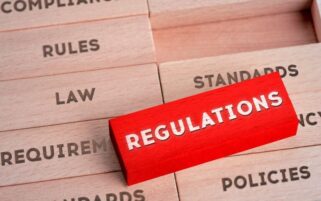Some GP practices could go out of business within two years due to the combination of rising inflation and a hike in GP costs.
That is the prediction of former GP Committee negotiator Dr Peter Holden who has prepared a model for the BMA on how inflation will affect practices.
It shows that inflation and recommended pay rises for practice staff are greater than the uplift to practice funding, meaning practice expenses are substantially eating into practice income.
The model, which Dr Holden shared with The BMJ, shows practice profits will fall by 16% this year. That equates to a pay cut for GP principals of almost 23%.
If high inflation rates continue, there is also the prospect of general practices becoming unviable because bank loans could be called in, said Dr Holden.
‘The key matter here is not just at what point we stop earning a living, which at 10% inflation is after four years, but at what point do the banks get scared and withdraw our loans—which I think could be as early as the end of next year,’ he said.
The UK has not experienced such high inflation levels since the 1980s, at which time general practice expenses were treated separately.
At that time, independent practitioners received an increase to cover their rise in costs plus an uplift to their income based on recommendations from the Review Body on Doctors’ and Dentists’ Remuneration (DDRB).
This changed in 2004 with the new GMS contract. A new funding formula was introduced along with the Quality and Outcomes framework, and expenses were no longer treated separately.
Dr Holden, one of the negotiators of that contract, said that pre-2004 even if the government did not give GPs a rise in income, at least any rise in expenses was covered.
Now, funding for independent GPs is tied to a five-year deal, which is due to conclude at the end of March 2024.
The deal for 2022-23 provides for a 2.1% uplift for all GPs, practice staff, and practice expenses based on predicted inflation in 2019.
But pay review bodies have recommended higher pay awards for practice staff – 4.5% for salaried GPs and £1,400 for nurses (at least 4%).
And inflation is much higher than was expected. Latest figures from ONS show that the current inflation rate is 9.4% and predicted to go higher, says Dr Holden. The Bank of England has predicted it will hit 13% in October.
Dr Holden described the situation as requiring ‘urgent’ action from the Government.
He estimated that GPs had around £5bn invested in premises including mortgages.
‘My concern is if the government doesn’t grip this, if the banks start to understand this fully, they’ll pull the bank loans long before we go bust,’ he said.
‘This is not going to go away. I understand the government not reopening the multiyear deal negotiated with the BMA for pay, but they’ve got to reopen it for expenses,’ he added.
Dr Holden’s model shows how inflation will affect GP expenses and impact on practice finances.
Using a baseline expenses to earnings ratio of 66.7%, and modelling inflation at 8% (based on predicted inflation at 11% minus 2.1% GP income uplift for 2022-23) the expenses to earnings ratio hits 72% this year.
If high levels of inflation continue, the expenses to earnings ratio will pass 90% after four years. Even if inflation falls, it will likely surpass 80% within two or three years.



